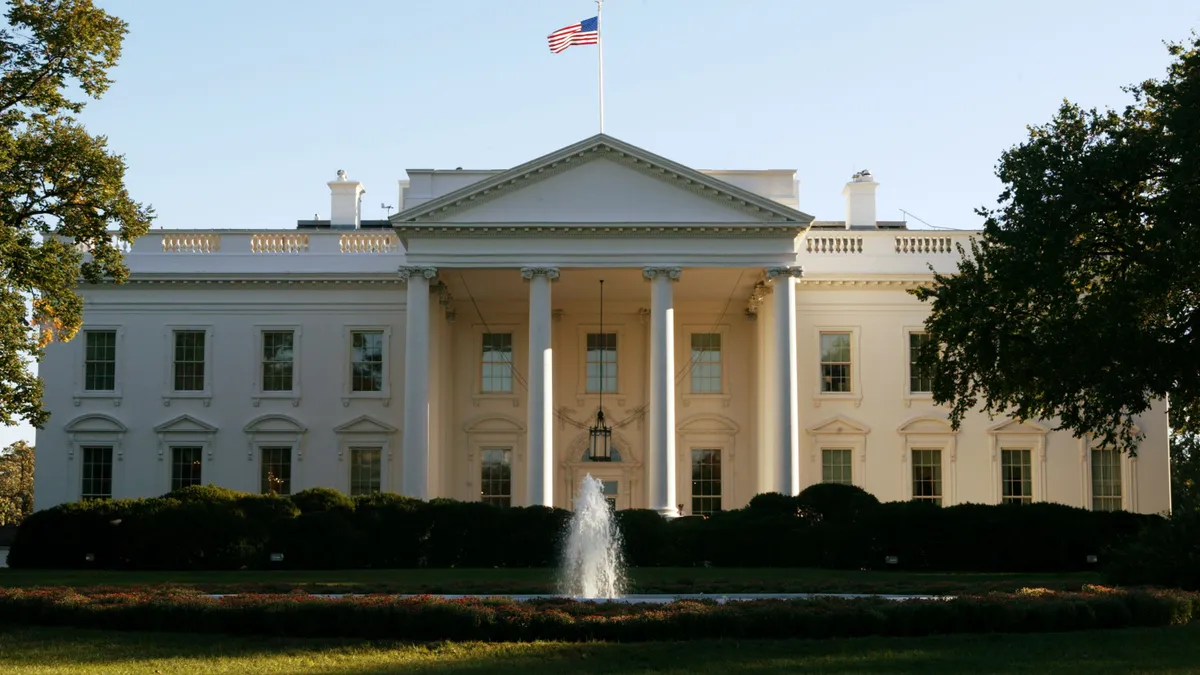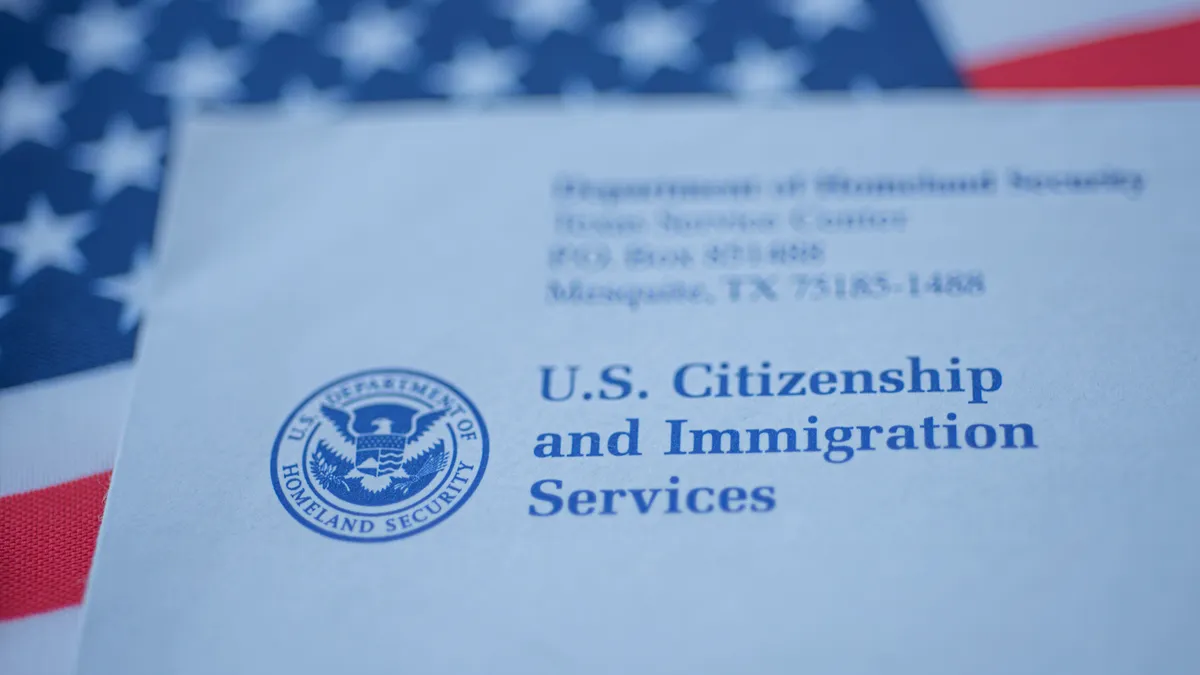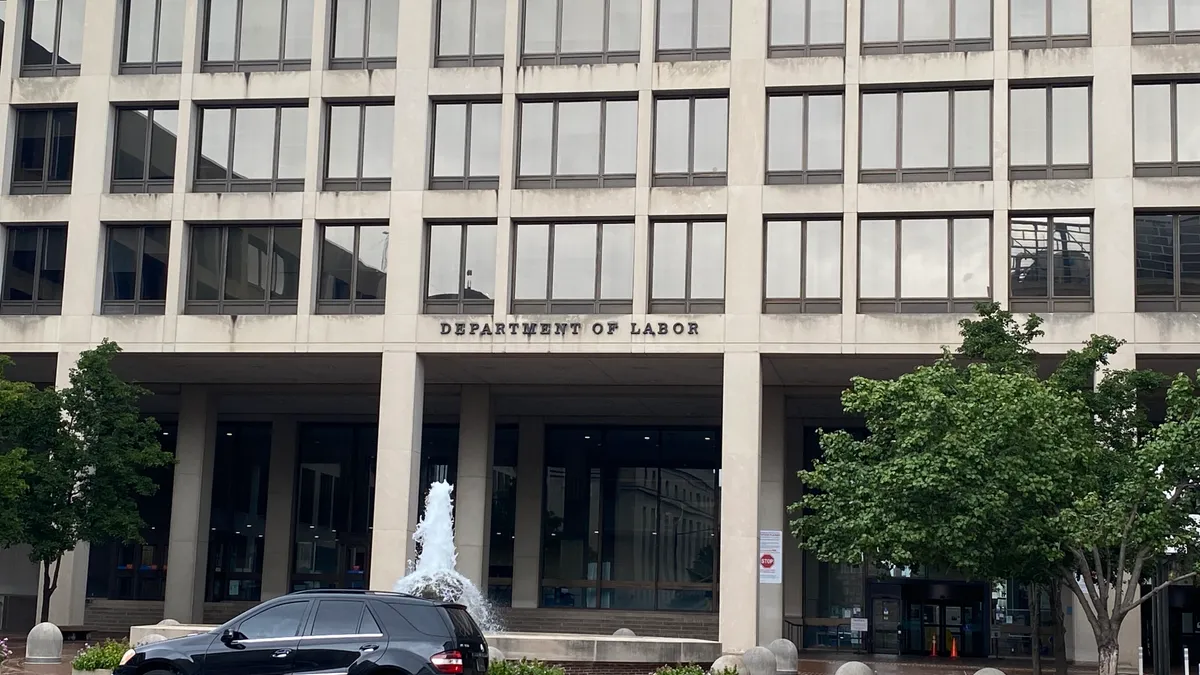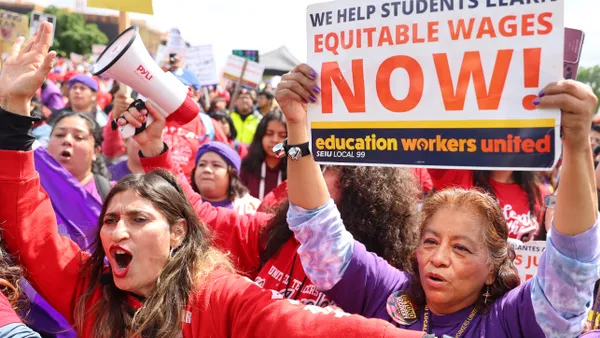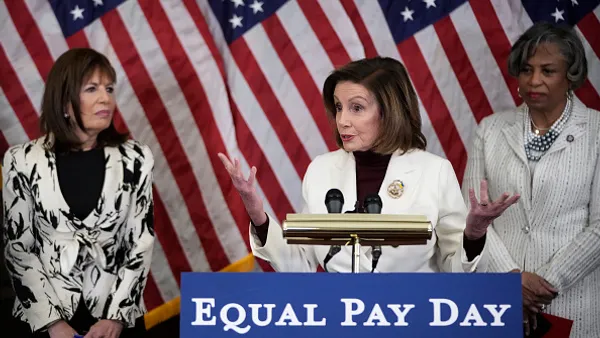Dive Brief:
- On June 25, President Biden signed an executive order with the aim of "strengthen[ing] the Federal workforce by promoting diversity, equity, inclusion, and accessibility" and creating a workforce that "reflects the diversity of the American people."
- The order directs the formation of a government-wide diversity, equity, inclusion and accessibility (DEIA) initiative and a DEIA strategic plan, due 150 days from the order’s signing. The plan must define DEIA success standards, identify strategies to advance DEIA goals, eliminate barriers to those goals and include a framework to address workplace harassment. The order also lays out guidelines for tracking and reporting on progress; encourages the use of DEI training programs; encourages the use of paid opportunities and a reduction in the use of unpaid labor, such as unpaid internships and apprenticeships; advances pay equity; and sets out particular guidelines for employees with disabilities and LGBTQ employees, especially trans individuals.
- The executive order builds on a range of memorandums and executive orders introduced during the Obama administration and under President Biden earlier this year.
Dive Insight:
President Biden made advancing racial equity and addressing the needs of other marginalized communities a cornerstone of his presidential campaign, and his actions over the first six months of his presidency show he remains focused on the topic. On his first day in office, Biden signed one executive order directing federal agencies to conduct an equity assessment and another executive order intended to address discrimination based on gender identity or sexual orientation.
Biden’s hand-selected leaders of federal agencies have also focused their attention on the issues of diversity and equity. In March, the Department of Labor announced the availability of $87.5 million in grants to support registered apprenticeships, with nearly half reserved for states that "implement required diversity, equity and inclusion efforts and demonstrate their commitment to adopt, expand and promote these efforts." In April, U.S. Equal Employment Opportunity Commission Chair Charlotte Burrows announced "renewed attention" from the agency on issues of systemic racism and discrimination.
Other aspects of the executive order — those related to pay equity and phasing out unpaid internships — spring from another key focus of the Biden administration: addressing disparities in income and strengthening the role of labor. Since January, the Department of Labor has focused on several issues related to worker payment, announcing its expectation to revisit the overtime threshold and reeling in a Trump-era rule pertaining to independent contractors, among other actions.
The Biden administration’s approach to both labor and diversity initiatives represent a dramatic departure from that of the Trump administration.



